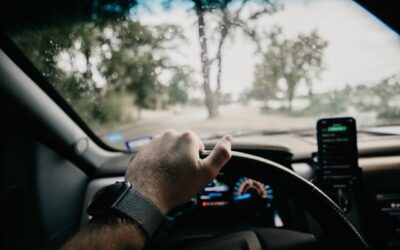In today’s technologically advanced world, the question of whether your car can be tracked without your knowledge is more pertinent than ever. With the rise of GPS technology, the Internet of Things (IoT), and increasingly sophisticated surveillance methods, the answers may surprise you. This article delves deep into the various ways your vehicle can be tracked, the legality surrounding such actions, and how you can protect yourself.
How Cars Can Be Tracked
There are several methods through which a car can be tracked. Understanding these methods is the first step in safeguarding your privacy.
1. GPS Trackers
The most common method for tracking a car is through a GPS tracking device. These devices can be easily purchased online and attached to a vehicle without the owner’s knowledge.
- Standalone GPS Trackers: These devices are battery-operated and can be placed anywhere on the vehicle. They transmit location data in real-time or at set intervals, making them versatile but also easy to hide.
- OBD-II GPS Trackers: Plugged into the On-Board Diagnostics (OBD-II) port of a car, these trackers are powered by the vehicle itself. They are more difficult to detect because they are hidden within the car’s internal systems. These trackers can provide continuous tracking without the need for frequent battery changes.
2. Smartphone Tracking Apps
If someone has access to your smartphone, they can install tracking apps that monitor your location. Many of these apps operate in the background and are difficult to detect.
- Parental Control Apps: These apps are often marketed to parents who want to monitor their children’s whereabouts but can be misused to track adults without their knowledge. The stealthy nature of these apps makes them particularly concerning.
- Spyware: More malicious forms of tracking apps, known as spyware, can be installed without your consent, often through phishing attacks or by physically accessing your phone. Spyware can track not only your location but also your activities and communications.
3. Vehicle Telematics Systems
Modern vehicles come equipped with telematics systems that include built-in GPS and internet connectivity. While these systems offer convenience and security features, they can also be exploited for tracking purposes.
- Manufacturer-Installed Telematics: Automakers install these systems to offer services like navigation, emergency assistance, and vehicle diagnostics. However, the data collected can potentially be accessed by unauthorised parties, raising significant privacy concerns.
- Aftermarket Telematics Systems: These are installed by third-party providers and offer similar services. They can also be vulnerable to hacking, making it crucial to choose reputable providers and keep the software up to date.
4. License Plate Readers
License plate readers (LPRs) are used by law enforcement and private companies to capture and store data on vehicle movements. These systems can be installed on roadsides, traffic lights, and even patrol cars.
- Fixed LPRs: Installed at specific locations like toll booths, these readers capture data on every vehicle that passes by. This data can be used to track the movement of vehicles over time.
- Mobile LPRs: Mounted on patrol cars, these readers can capture data on vehicles as they drive around, effectively tracking movements within a certain area. This allows for real-time monitoring of vehicle locations.
Legal Considerations
The legality of tracking someone’s vehicle without their consent varies by jurisdiction. It’s essential to understand the laws in your area to know what is permissible and what isn’t.
1. In the United States
In the U.S., laws regarding vehicle tracking are complex and vary from state to state. Generally, tracking someone’s car without their consent is illegal under federal and state privacy laws.
- Federal Law: The Electronic Communications Privacy Act (ECPA) and the Computer Fraud and Abuse Act (CFAA) provide some protections against unauthorised tracking. These laws make it illegal to intercept electronic communications or access computer systems without permission.
- State Laws: Some states have specific laws that make it illegal to install a GPS tracker on someone’s vehicle without their consent. Always check your local regulations, as penalties can vary widely.
2. In the European Union
The General Data Protection Regulation (GDPR) provides robust protections against unauthorised tracking in the EU. Tracking someone’s vehicle without their explicit consent could result in severe penalties.
- Explicit Consent: Under GDPR, explicit consent is required for tracking, and individuals have the right to know how their data will be used. This includes the use of tracking devices and apps.
- Penalties: Violations of GDPR can result in heavy fines and legal action, making it crucial for individuals and companies to adhere to these regulations.
How to Detect If Your Car Is Being Tracked
If you suspect that your vehicle is being tracked, there are several steps you can take to confirm and address your concerns.
1. Physical Inspection
Perform a thorough inspection of your vehicle, focusing on areas where a GPS tracker could be hidden.
- Undercarriage: Check the undercarriage of your car for any unfamiliar devices. This is a common hiding spot for standalone GPS trackers.
- Wheel Wells: Inspect the wheel wells for any attached trackers. These areas are often overlooked but can house small tracking devices.
- OBD-II Port: Look at the OBD-II port for any unfamiliar devices plugged in. This is a prime location for OBD-II GPS trackers, which are harder to detect.
2. Use a Bug Detector
Bug detectors are specialised devices that can help locate hidden tracking devices. They work by detecting the radio frequencies emitted by GPS trackers.
- How They Work: Bug detectors can scan for frequencies typically used by GPS trackers and alert you to their presence.
- Effectiveness: While not foolproof, bug detectors can be an effective tool for finding hidden trackers, especially when combined with a physical inspection.
3. Professional Help
If you’re unable to find anything on your own, consider hiring a professional. Private investigators and specialised security firms have the tools and expertise to detect hidden tracking devices.
- Expertise: Professionals have advanced tools and techniques to locate even the most well-hidden trackers.
- Peace of Mind: Hiring a professional can provide peace of mind, knowing that your vehicle has been thoroughly inspected by an expert.
How to Protect Yourself
Taking proactive steps can help you safeguard your vehicle from being tracked without your consent.
1. Regular Inspections
Make it a habit to regularly inspect your vehicle for any unfamiliar devices. The more frequently you check, the less likely a tracker will go unnoticed.
- Routine Checks: Incorporate inspections into your regular vehicle maintenance routine.
- Awareness: Stay informed about common hiding spots and new tracking technologies to better protect yourself.
2. Use Anti-Tracking Devices
Anti-tracking devices, such as GPS jammers, can prevent GPS trackers from sending location data. However, be aware that the use of such devices may be illegal in some jurisdictions.
- Legality: Before using any anti-tracking device, check local laws to ensure compliance.
- Effectiveness: While effective, these devices should be used cautiously and responsibly to avoid legal repercussions.
3. Cybersecurity Measures
Protect your smartphone and any connected devices within your car.
- Strong Passwords: Use strong, unique passwords for your devices. Avoid using easily guessable information.
- Anti-Spyware Software: Install reputable anti-spyware software to detect and remove unauthorised tracking apps.
- Two-Factor Authentication: Enable two-factor authentication to add an extra layer of security, making it harder for unauthorised parties to access your devices.
4. Legal Recourse
If you discover that your vehicle is being tracked without your consent, report it to the authorities. Legal action can be taken against the perpetrator, especially if the tracking violates local laws.
- Documentation: Keep detailed records of any evidence you find, including photos and descriptions of tracking devices.
- Report: Contact law enforcement to report unauthorised tracking and seek legal advice to understand your rights and options.
Conclusion
The ability to track a vehicle without the owner’s knowledge is a double-edged sword. While it offers significant benefits for security and convenience, it also poses serious privacy risks. By understanding the various methods of tracking, the legal landscape, and the steps you can take to protect yourself, you can better safeguard your privacy in today’s interconnected world. Always stay vigilant and proactive to ensure that your vehicle and personal data remain secure.













